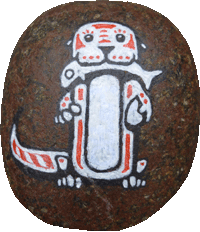12th July 2011
On the boat back up the Napo River from Sacha we caught glimpses of some of the oil infrastructure here in what would otherwise be the wilderness of Ecuador. The Amazon basin is very rich in oil reserves and occasionally the jungle would open up to show a boat dock or a burner with a big gas flare on top. The oil business in itself isn’t too destructive in terms of rainforest area, but the roads that are cut through the forest to build pipelines and maintain facilities are the problem. These provide access for people, who clear land for farms or plantations. They cut smaller roads off the big roads and like a network of veins the rainforest is gradually nibbled away.
It’s surprisingly easy to connect this to our own lives. Who likes a cup of coffee? Well, every cup of coffee – fair trade or otherwise – comes from a plantation which almost certainly required clearing an area of primary rainforest, destroying the habitat of all the wildlife living there. Apparently if you look hard enough on the shelves of UK supermarkets you’ll find coffee described as ‘Shade Grown’. These new varieties grow well in a shady setting and so allow the farmers to only clear the undergrowth and leave all the towering rainforest trees in place, along with all the birds and monkeys.
So you know what to do. Don’t forget.
There’s an interesting case that Dan told us about, which I need to google at some point. There is a block of untouched rainforest in the heart of Ecuador with amazing biodiversity and a set of primitive tribes which are still virtually untouched by the modern world. It is in Yasuni NP and called the ITT block. Of course, it is also sitting on top of enormous oil reserves which a developing country like Ecuador would dearly like to tap. Naturally enough conservation groups in the western world would prefer them not to cut roads into this pristine wilderness. So the Ecuadorian government has made a simple request of western nations: give us 2.3 billion dollars, one half the estimated net value of these oil reserves, and we will leave them untouched and keep the area protected.
I’m not sure what to think of this. On the one hand the argument goes: who are we to tell Ecuador to protect their natural heritage and forego billions of dollars of wealth? If we want the forest protected, we must compensate them. On the other hand the argument goes: the oil will always be there, becoming more valuable as other global reserves run dry, so surely any kind of payoff is only a stay of execution?
This is very much a live story; some European countries have stumped up part of the 13 billion, but they don’t have it all yet. The future of this block of rainforest hangs in the balance.
Related Images:













































